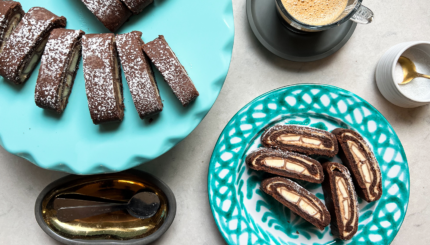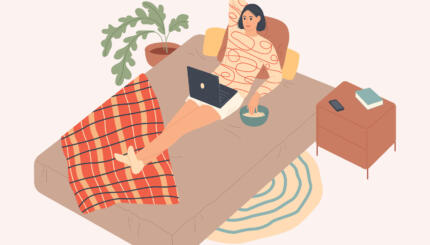The phone rang early in the morning, just a few minutes after I had gotten out of bed. It was one of my Palestinian colleagues. “Hanan listen,” he said, “I need money. I have to take my son to the hospital.” I asked him how much and he told me. Fumbling in my wallet, I discovered that the amount he needed was every last shekel I had. “OK, I can give you the money.” He asked where we should meet and I gave him a location: “Outside the old gate of Alon Shvut.” He said that he would be there in eight minutes. I put down the phone, gathered up the money, put on my shoes – while still in my pajamas – and walked out the front door of my home.
We had to meet at the gate because Palestinians are not allowed inside my settlement of Alon Shvut. Just as Israeli military orders do not allow Israeli citizens to set foot in Palestinian cities and villages in the West Bank / Judea and Samaria, so the same military law does not allow Palestinians into the Israeli settlements and cities next door. There are exceptions. Palestinian laborers are permitted to enter, as long as they have a valid work permit, during work hours, and under the watchful eye of an armed Israeli. But my Palestinians friends are not laborers and in any case, I refuse to carry a weapon for ‘protection’ against my trusted friends.
So I hurried to the gate. It was important that I arrive as soon as possible, because there is no place for a Palestinian vehicle to wait there. Any car with a white or green (Palestinian) license plate immediately arouses suspicion amid the sea of yellow (Israeli) license plates hurrying in and out of Alon Shvut during these morning hours. Were my friend’s car to stop there, Israeli security personal posted at the entrance would accost him within five minutes.
I could not make him wait for me, but I knew that I might have to wait for him. The IDF often sets a temporary checkpoint a few hundred meters in front of the gate. Palestinians driving through can be stopped and asked where they are going. An answer that I am going to meet my Israeli friend at the entrance to Alon Shvut to borrow some money would probably be met by smirks of incredulity. And perhaps detention.
My thoughts wandered as I quickened my gait. This same friend and I had participated in a long meeting just two days ago. He had begun to straighten out the blanket on the bed on which the two of us had been sitting. I understood that he wanted to interrupt the meeting in order to pray before sundown. I said that I also would take the opportunity to recite the afternoon prayers. I arose, quickly went to the bathroom, washed my hands, and stood to say the Mincha Service. Ten minutes later when I returned, my Muslim friend was just about to begin his prayers. His face and ears were glistening in the cold winter air, the rays of the setting sun refracted by the droplets of water remaining from his ablutions. “Jews don’t wash themselves in preparation for prayer?” he half-asked, half-noted with a kind of bemused tolerance.
That thought brought me to another one. Just the night before, a hundred or so members of the Alon Shvut community had gathered in the sanctuary of the main synagogue. During one of the keynote addresses, the former head rabbi of Alon Shvut, his eyes sparkling with faith and fervor, emphasized the glorious holiness of the institution of the Jewish synagogue. He exhorted us to treat it with utmost respect and deference, “not” – and I quote – “Like the irreverent behavior of the Muslims in their cursed mosques, throwing their shoes all over the place.”
I extracted myself from my thoughts, looking around me as I walked towards the gate. Tens of buses and hundreds of parked cars disgorged throngs of students coming to study Torah at the Herzog College connected to the world-renowned Har Etzion Seminary. They are the cream of the crop, present, and future rabbis and teachers training to ‘bring forth Torah from Zion,’ to be the ‘light unto the nations’ that will enlighten the world with the ethical monotheism of Judaism.
How could they not see the contradiction between what they practice and what they preach? Do the teachers and students not see the Palestinians living in abject poverty, under an oppressive system of military rule that denies them the right to build a roof for their school and a minaret for their mosque, less than 500 meters from our synagogues, our study halls, our libraries and our classrooms?
Do they not see that our superb public health system is closed to the Palestinians who live closer to the clinic than many of us do? How would they react upon learning that I am carrying ₪1000 shekels for my Palestinian friend to rush his son to a distant and substandard Palestinian hospital because our health insurance system does not accept Palestinians, and the local clinic – filled with patients right now, I passed it on my way – is for Jews only?
I know from experience how many of them would react – with excuses. And I know how I react – I am nauseated…
I arrived at the gate, crossed the threshold, and walked outside. My friend drove up, his son sitting beside him, limp and forlorn, his gaze empty as if looking into the distance in front of him. My friend stretched out his hand, and I deposited the envelope in his palm. We looked at each other for a moment. I said Refuah Shleima – speedy recovery – and they sped away.
This was not the first time I had received such a phone call and not the first time I had hurried to the gate with an envelope of bills. At the beginning I used to get a bit impatient – why don’t they get their financial affairs in order? Why don’t they take out health insurance? These days I no longer get perturbed at them but rather at the system and the situation, and especially at us Israelis for our part in creating and perpetuating this abject, immoral mess. We have got to do better, and for the most part, we are not even trying.



